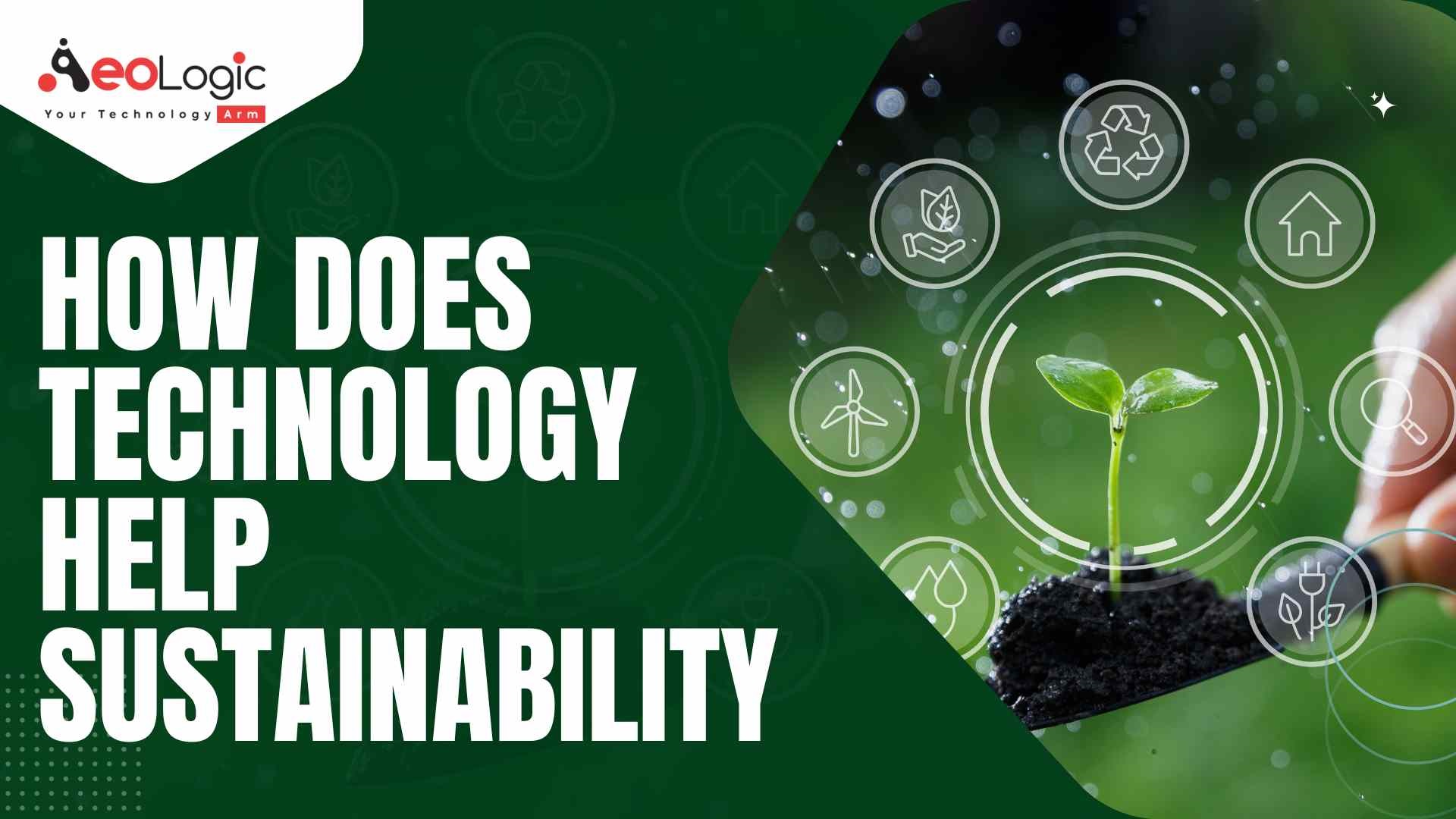As the threat of climate change is increasing, more urgent, sustainability is becoming a more pressing concern for companies of all sorts. However, this issue doesn’t just matter to businesses, either. In fact, more than half of consumers are most likely to purchase sustainable products. Whereas, 31% of customers will go out of their way to do so. Technology help sustainability to make our lives easier. Nonetheless, it is also the key to protecting the environment. Technological advances in recent years are making sustainable living more viable than ever.
Considering big-picture, sweeping changes to everyday adjustments, the following are 10 ways in which technology help sustainability.
Also read: How to Transform ESG With Technology
1. Internet of Things
The Internet of Things (IoT) is the increasing network of internet-connected devices in our lives today. One of the major advantages of the IoT is the ability to monitor all your devices’ activity. This function is where it can facilitate sustainability.
Incorporating IoT-enabled appliances can help in cutting down on energy waste. You can set lights and air conditioning or even heating units to turn off automatically after a specific time, or turn them off remotely while you’re away. Also, the IoT is helping companies track and then improve the lifecycle of their products.
2. Alternative Energy
Another way in which technology contributes to sustainability is Alternative energy. It isn’t just for businesses any more. Solar panels for homes used to be expensive and inefficient. However, they are becoming increasingly affordable. Nowadays, solar power is a practical option for several households. If not as their primary power source, then as an auxiliary to facilitate becoming less dependent on energy companies.
3. Energy Storage
Batteries are nothing new, however, they are getting far more efficient. In the past years, energy sources like solar power have been ineffective because of the challenges that come with storing the energy they generate. But, modern battery systems like Tesla’s Powerwall are making it possible for people and businesses to store and use power in a much less wasteful manner.
4. Big Data Analytics
Big data is essential to online marketing, but it has many other uses for improving sustainability as well. Thereby, by collecting and analyzing large pools of data, companies are growing more informed about environmental concerns.
Companies can look at their energy usage and use big data to focus on areas where they can improve efficiency. These insights are providing businesses with a robust picture of their overall ecological impact. And, calculating possible environmental risks.
5. Meat Alternatives
Another way in which technology help sustainability is through Animal agriculture. It is accounting for roughly 14.5% of human emissions globally. Therefore, lowering our meat intake can significantly reduce pollution, and technology can help with that.
6. Hygiene Surveys
Technology is making it easier for conducting imperative health and safety surveys. Survey programs like SMARTouch are allowing businesses to asses their hygiene, air quality, and similar environmental concerns quickly, safely, and accurately. Therefore, this data will, in turn, help them improve their environmental impact.
7. Interactive Mapping
One of the most important factors in addressing climate change is raising awareness. Hence, interactive, engaging maps of areas hit hardest by global warming can help make people in more temperate regions understand the severity and extent of climate change.
8. Indoor Farming
Since agriculture takes up a lot of land, but it doesn’t have to. In fact, indoor farms are more efficient than conventional ones and don’t use nearly as much land. Therefore, reducing habitat destruction.
Thereby, using climate control technology, indoor farms can produce seasonal crops all year. As the population increases, this versatility could prove important. People will always require agriculture. However, we are running out of space.
9. Precision Agriculture
Indoor farms are not the only method of agriculture benefiting from technology. Precision agriculture is entailing the use of technology to make farming practices more accurate and controlled.
From harvesting vehicles to sensors in irrigation systems. Precision agriculture is helping farmers get the most out of their crops. This accuracy can considerably reduce waste and increase yields.
10. Electric Vehicles
Much like with solar panels, older electric cars were overpriced and impractical. However, with advances in automotive technology, electric vehicles are now a perfectly practical option.
Manufacturers like Tesla and BMW are not only making electric cars more efficient but even more affordable. As time passes on, these technologies will only grow cheaper and more effective.
Also read: How Technology is Strengthening the Future of EVs in India
Conclusion
Technology that’s focused on sustainability is now the cornerstone of several industries, and will continue to enhance the way business is conducted well into the future. Therefore, technology help sustainability in several ways.
Get in touch with us to know more!
FAQs
How does technology is helping with sustainability?
Smart building systems, robotics, and digital twins are helping organizations to become more efficient and shrink their carbon footprint. Cloud computing is allowing utilities to manage energy sustainably across entire grids.
Is technology the key to sustainability?
Technology is a vital enabler of sustainability – from accelerating Net zero transitions to creating more sustainable value chains. One new research stated that companies with the most comprehensive sustainable tech strategies are performing better across the board.









